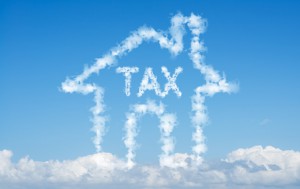Are there ways to avoid or reduce paying CGT on investment property entirely?
Yes, there are!
It’s an unfortunate part of every property investor’s journey that they will most likely eventually be liable for Capital Gains Tax or CGT.
But there are a few strategies that can help you minimise your CGT when it comes to realising the profits on your investment property.
And some situations where you may be able to avoid it altogether.
What is Capital Gains Tax?
Before we begin, let’s outline what CGT is – it’s a tax paid on the profit you make from the sale of an investment property.
A capital gain is the difference between what you paid for a property and what you sold it for if you purchased it with the intention to keep it as an investment.
In Australia, investors pay CGT on many asset sales such as:
- Real estate
- Shares
- Managed funds
- Collectables
How much CGT will you have to pay?
If you decide to sell an investment property, your CGT calculation will be based on the net sale price of the property, minus your expenses.
When selling, the costs associated with the sale such as agent’s fees, styling, repainting, bank fees, etc. are used to reduce your gross selling price.
If the property was purchased with the intention to keep, as opposed to selling, as an investment property, the capital gain can be reduced by 50 per cent if it was held for over 12 months.
However, you would have to add back the benefit of any depreciation you had claimed along the way.
Some investors actually make a capital loss when they sell their property, which would negate the need to pay any CGT at all.
It’s important to understand that any loss is attributable to the titleholder.
To explain, a capital loss is when you sell a property for less than your reduced cost base as calculated using the parameters above.
The good news is that you can carry a capital loss forward into future years and offset this against future capital gains you may make.
Can you legally avoid paying CGT while renting out your house?
In Australia, your principal place of residence or home is exempt from CGT.
If that property goes on to become an investment, you could well be exempt from CGT liability under something that’s called the Temporary Absence Rule.
Consider this…
If you’ve moved out of your home and rent it out, under the law, the property can still be treated as your principal residence for tax purposes for a period of up to six years.
Therefore, if you sell your property within that six years you may be exempt from paying CGT if you profit from the sale, unless you chose a different home for this exemption.
You may also be exempt from paying capital gains on the income generated from the leasing of the property.
Sound too good to be true?
Well the answer to that is yes and no!
Unfortunately, in this scenario, you will still need to pay CGT on the sale of one of your properties if you have bought another “home”.
For example, if you move out of your home and rent it out, but you also buy another property to live in, you will need to select one of the two properties as your principal place of residence and the other as the property that’s liable for CGT.
However, a strategy to avoid paying CGT entirely is to buy a property through a self-managed superannuation fund (SMSF).
How does it work?
Buying property through your SMSF is one way you can generate profits through the residential property while avoiding CGT – but there are caveats!
If you sell a property held within an SMSF once you retire and are in the pension stage, you won’t pay capital gains on the property.
And if you sell the property while you’re still working, you will only be taxed at a rate of 15 per cent.
Furthermore, if you’re holding on to the property for longer than a year, the tax rate will effectively drop to 10 per cent.
Buying a property within your SMSF comes with some risks, so you should never attempt it without first seeking professional advice.
Unfortunately, there is no silver bullet to avoiding CGT entirely on an investment property.
And, at the end of the day, if you have to pay CGT it means that you’ve made a profit on the property – which is what we all want, isn’t it?
There are strategies to limit the tax payable on any capital gains so it is worth getting specific advice.
from Property UpdateProperty Update https://propertyupdate.com.au/can-you-avoid-paying-cgt-on-investment-property/

No comments:
Post a Comment